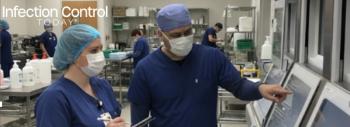
FDA Clears Upgrades to Make Cardiac Surgery Device Safer
The agency has been pushing to make the LivaNova Heater-Cooler System 3T safer since 2015.
In an effort to prevent infection during cardiac surgery, the US Food and Drug Administration (FDA) today OK’d improvements to a device that warms or cools patients during such procedures. The action represents the latest upgrades to the device-the LivaNova Heater-Cooler System 3T-that the agency has been pushing for since 2015.
The FDA wants to get the word out to healthcare providers to use the updated version of the device because it “incorporates all of the corrections made to the device since 2015 and adds new validated cleaning and disinfection instructions and updated labeling,” Bram Zuckerman, MD, director of the Office of Cardiovascular Devices in the FDA’s Center for Devices and Radiological Health, said in a
The FDA notified the maker of the product, LivaNova USA, Inc., of its move in a
At issue is the water used in the heating/cooling process. “Heater-cooler devices are commonly used to warm or cool a patient to improve medical care and patient outcomes during cardiac surgery,” Zukerman said. “They remain critical to patient care.”
That water comes from water tanks in the devices and feed external heat exchangers or warming/cooling blankets through closed circuits. And although the water doesn’t come into contact with patients directly, contaminated water can enter other parts of the device and aerosolize.
“This could send non-tuberculosis mycobacteria (NTM) through the air and through the device’s exhaust vent or other unsealed pathways, the environment, and to the patient,” according to the FDA.
Zukerman said that “we’ve been working intensively with the device industry and medical community to understand this problem and reduce the risk of infection to patients.” The LivaNova Heater-Cooler System 3T “had been the focus of several FDA activities in recent years. The corrections made to this heater-cooler device since 2015, publicly available in the FDA recalls database, have been shown to reduce the risk of patient infection,” he added.
Newsletter
Stay prepared and protected with Infection Control Today's newsletter, delivering essential updates, best practices, and expert insights for infection preventionists.




